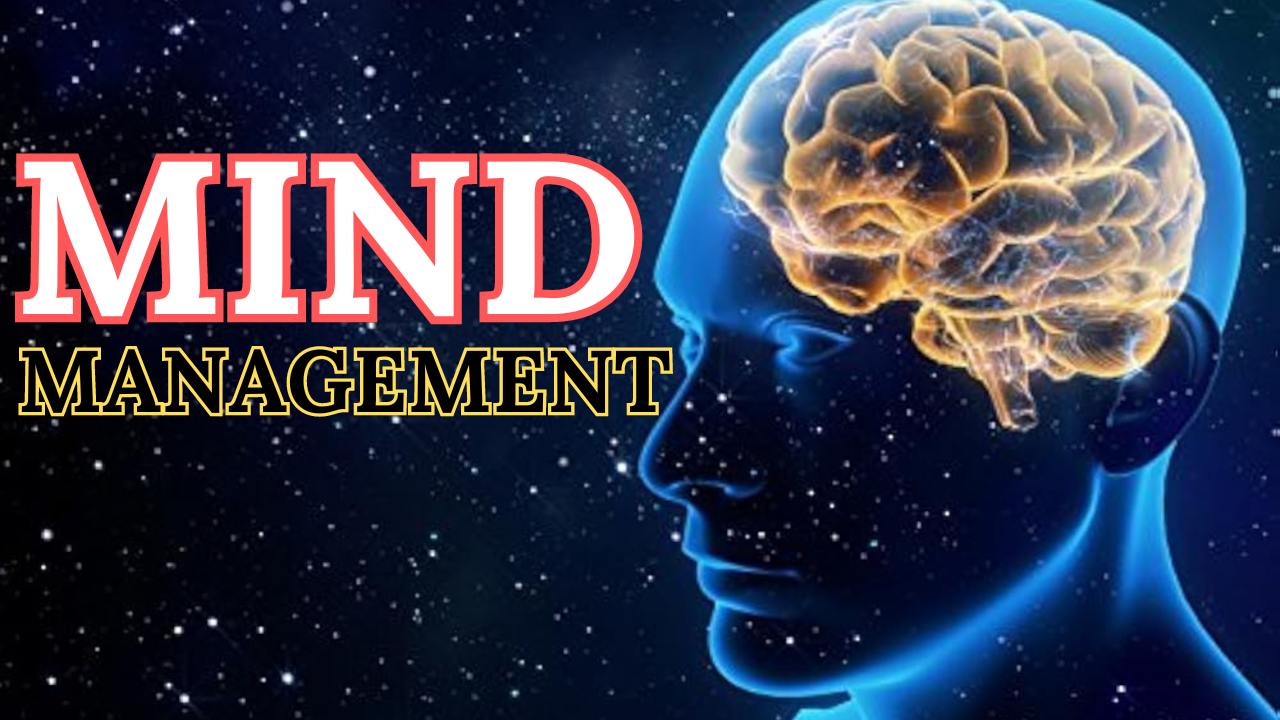Almost every time you must have heard how Important is Time, and how important it is to manage our time wisely, but in this book summary author says that not Time management but it is Mind management which is important to accomplish all our work on Time, in this summary I will share 4 stages of Creativity and also 7 Mental stages of Creativity. This will help you manage your Mind which will eventually manage your time.
David Kadavy and his Ten-Year Research:
So, what should we do? David Kadavy and his 10 years of research, David Kadavy wrote a book called “Mind Management, Not Time Management” back in 2010. When he was offered to write a book, he was very happy.
He immediately accepted the offer and started working on the book. But the thing was that even after six months of working, his book was far from completion.
The twist was that the author was told that if he didn’t complete the book within six months, he would have to return all the money he received upfront. Now, intending to complete the book, the author put all his clients on pause for six months.
He freed up his entire schedule and started working on the book. But as soon as he started, he began to experience creative blocks. Sometimes, he couldn’t even write a single page in a whole day, while other
times, he could write an entire chapter in just 15 minutes. Many couldn’t understand why, despite sitting for the whole day, he couldn’t write, while in just 15 minutes, he sometimes got so much done.
So, the author started figuring out this phenomenon.
What is creative work?
What is the connection between time and productivity? Why does the flow happen sometimes and not others? What can be done about this routine and what should be done? Because he had set a goal to write for 12 hours every day, but it wasn’t happening.
So, the author started researching this topic. You could say he researched it for a total of 10 years. By understanding all these aspects—productivity, time management, mind management—he figured out what they are and how we can apply these concepts in our lives to become more productive individuals. I am now sharing several points on this and some interesting facts with you. Frederick Taylor, whom we know as the Father of Scientific Management.
Frederick Taylor (father of Scientific Management)
Once started observing the motions of factory workers to increase their productivity. He watched how they moved around and where they went. He also began to observe which workers were working more efficiently.
Afterward, Frederick provided them with motion training, which enabled them to efficiently move rods from one place to another. Following this training, the workers’ productivity increased fourfold.
Subsequently, every worker in the factory started receiving this training.
They also began to receive incentives. For example, if a worker’s daily wage was one dollar, they would be given one dollar and eighty cents if they completed their tasks. Additionally, deadlines were set, which massively boosted their productivity.
Frederick then started to focus more on and work on these methods. But then a time came when efficiency started to decrease instead of increasing. That is, workers who were moving 10 rods an hour were now only moving five, which is known as the law of diminishing returns.
Research from Harvard also proves that when workers become extremely busy and try to do too many things, they become less creative and start experiencing negative returns. From this research, it was understood that it’s not true that if you keep searching for work efficiency, work blindly, extend your time, or make things more systematic, results will continuously improve.
After a certain point, results might even decrease. So, the question is, what is the best strategy? For getting work done and being productive, well, that, is the author. The author says that first, we need to understand the four stages.
Understand 4 Stages of Creativity
The author says that first, we need to understand the four stages of creativity and, along with that, it’s very important to know the seven mental states of clarity.
Because based on these two, we can be most productive and work effectively. That’s why he compares time management to trying to extract blood from a stone. Instead, it’s better to focus on mind management.
Every task is done using the mind, and if we can hack our mind and understand when creativity comes, when we feel most like working, and when our energy is optimal, then we can automatically work better and create better results. In the long run, so let’s first understand what the four stages of creativity are.
- Preparation:
The first stage of creativity is preparation. Preparation is our learning period. During this phase, we should do as much research as possible on our current subject.
Did you know that author Steven Covey read as many motivational books as he could for 10 years to write “The 7 Habits of Highly Effective People”? After that, when he wrote “The 7 Habits,” do you know how successful it became and how it impacted the lives of millions of people?
- Incubation:
The second stage is incubation—taking breaks. The author of “Sapiens,” Yuval Noah Harari, takes a two-month break every year and goes to the forests. In the forest, he completely disconnects himself from the modern world and focuses only on rest and meditation.
- Illumination:
The third Illumination For example, imagine a scientist who has been experimenting in the lab for a long time, consuming information, analyzing data, and constantly looking for ways to prove his hypothesis.
Despite doing a lot, he still doesn’t get the results. But then suddenly, when he is traveling in a car or doing a mundane task that doesn’t require much thought, he gets an idea and figures out how to prove his hypothesis.
Now, I’m giving you an example of this, but the truth is that this happens many times with many people in the scientific community. When they engage their minds in another subject or in tasks that don’t require much creativity, they often come up with many ideas. This is called illumination.
- Verification:
The fourth stage is. Verification is a state where you verify your ideas, work, or thoughts with others or by yourself. For example, if you are working in an accounting firm and creating a financial report, after making the report, you cross-check it yourself or give it to a senior person to check for any mistakes you might have made.
These are the four stages of creativity that you should use. Along with this, you should also understand the seven mental states of creativity.
7 Mental Stages of Creativity:
Remember, the author says that all of us are always in one of these seven stages, and when we know which stage we are in and work according to those stages, we can accomplish a lot in the least amount of time.
For example, He wrote entire chapters in just 15minutes because he was in that mental stage at that time.What are the mental stages?
- Prioritize:
Well, the first stage is the prioritized mental stage. In this mental stage, you need to prioritize your thoughts. Throughout the day, we process between 12,000 to 60,000 thoughts. Among these thoughts, you need to pay attention to the most important ones.
How can you do that? To do this, you need to ask yourself three questions:
What do I need to do?
How can I get this work done?
And what shouldn’t I do? What do I need to do?
This will give you direction on where to move forward. How can I get this work done? This will give you velocity, or speed. What shouldn’t I do? This is the first stage.
- Explore
The second stage is exploring. In this mental stage, you explore your priorities. This means you start writing down which tasks you should do and which ones you shouldn’t according to your priorities.
- Research
The third stage is research. After exploring, you have all the information about what tasks need to be done and which ones should be prioritized. In this stage, you don’t need to use much of your brain.
At this time, you can use Google to find information. You can learn things and acquire new information.
- Generate
The fourth stage is generating. After you have done the research, you will have answers to many questions. Once you have these answers, you need to generate something—whether it’s writing a script, perhaps shooting a video, or writing a book. In this stage, you basically take action.
- Polish
The fifth stage is Polish. Here, you start refining what you have generated. Fifth Polish You take a step back and look at your work from a bird’s-eye view to see if you have done it well or not.
- Administrate
The sixth stage is administrating. In this mental stage, you completely separate yourself from the work.
You might spend time with your family or go out somewhere. Administration is the stage where you organize everything you have done systematically.
For example, properly maintaining documentation and organizing all tasks.
- Recharge
The last stage is recharge. In this stage, you give yourself a break to recharge, such as going on a vacation or a mountain trek, so that your mind can refresh and rejuvenate. For all the tasks you need to do repeatedly, the point is that at any given time, you are always in one of these stages.
You need to always notice which stage you are in at different times of the day and which tasks you are ready to work on according to that stage. For example, sometimes when I go to write a script, I don’t feel like writing it. But at that time, I enjoy doing research.
I feel like writing in the early morning. If instead of writing or doing research, I start doing administrative work and organizing things during that time, I won’t be effective and will waste time.
Therefore, first, you need to understand which tasks fit best with each stage of work you’re doing.
Then, you should perform those tasks according to your mental state at the time when you can perform at your best. If you are feeling very overwhelmed from working too much, then perhaps recharging might be better for you.

